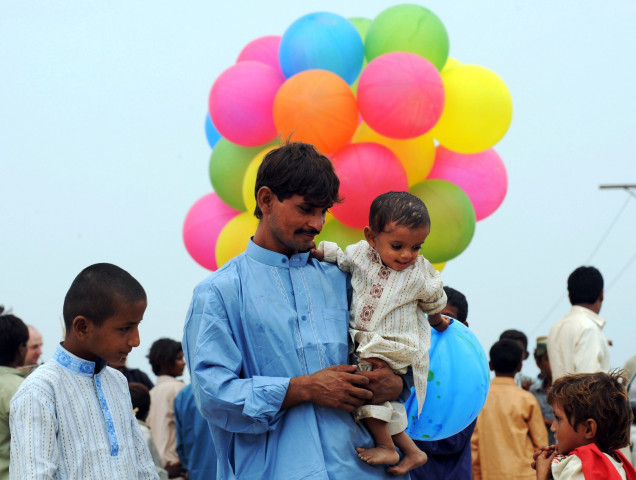Happy Eid. Now get to work
While most of us are celebrating Eid with our families and friends there are those who do not have that luxury.

Doctor:
Dr Aqeel Hafeez, a cardiologist, said that it was exceedingly difficult to work on Eid. “When the entire family is home and I have to head out to the hospital, I feel really bad. However, this is part of our choice of the profession. Family members sometimes don’t understand this and plead with me, saying that some other doctors are at home while I am on duty.
This, however, is not the case. All doctors work on Eid, just on different shifts. So, some of us work on the first day and some on the second. We are also divided between morning and evening shifts. The flow of patients at large hospitals increases during Eid as smaller clinics are generally closed.
I find myself looking at my watch again and again, anxious for time to pass by,” he said. Hafeez added that when you save a patient’s life on Eid you do have a feeling of satisfaction.
Police officer:
Suba Khan, a police officer, said that the duty schedule on police deployment was issued prior to Eid. He said that he had been plagued with uneasiness when he realised that he had to work on Eid but duty does come first. Khan said that he tries to be polite with people on this special day and facilitates them in any way he can. “We also instruct junior police officers to behave courteously with the public on Eid,” he said. Khan said that there was no special allowance on Eid for police officers.
Journalist:
Mohsin Yassin, a journalist employed in electronic media, said, “Nothing can be more awful than coming to work on Eid. It feels weird to say goodbye to my family.
It’s going to be my first Eid at work, and I am already feeling low. However, someone has to be there to keep things going. That’s the way it is.
At the end of the day, one should try to live up to the spirit of the occasion regardless of where one finds oneself. So all I can do is chill and relax (which you obviously can’t really afford to do while at work) and have fun.”
Traffic warden:
Muhammad Faisal, a traffic warden, said that often his colleagues who hailed from outside Lahore headed home for Eid and he ended up working. “It’s tough to leave family and friends knowing that you will be missing out on a lot of fun. When you are at work, you see people roaming the streets and enjoying themselves and it does divert your attention for a bit. However, it’s hard to be in uniform when others are dressed up to the nines.”
Petrol pump attendant:
Salman, a petrol pump worker stationed near Barkat Market, said that he had to work a full 12-hour shift on Eid. “It is difficult but I cannot take the day off. The boss tells us to be here on time. I can’t really refuse to come in to work. It just does not work like that. If I refuse, I might end up losing my job and someone else will work the shift. So I do my job and feel like I’m helping people move around the city by filling their cars up.”
Fire fighter:
Malik Siddique Zahid, a fire fighter, said that he worked as per routine on Eid.
“We work in three shifts and this practice continues on Eid too,” he said. Zahid said that it was onerous to work on Eid but that duty was above other things.
Sanitary worker:
Salamat Masih, a sanitary worker, starts his day early on Eid. “People want to see clean streets on Eid. I get up and do my work before people head back home from Eid prayers. Someone has to keep things clean,” he said. Masih said that he did not dislike working on Eid, however, he does find it cumbersome to work when others are wearing new clothes and enjoying themselves. “I get Eidi to acknowledge the work I do which makes me happy,” he added.
Tandoor wala:
Maqbool Butt, a tandoor wala, said that although working on Eid was hard, it was also one of the highest sales days. “I really can’t stay at home. Lots of people turn up at the tandoor and we have to serve our customers,” he said.
Published in The Express Tribune, September 11th, 2010.



















COMMENTS
Comments are moderated and generally will be posted if they are on-topic and not abusive.
For more information, please see our Comments FAQ